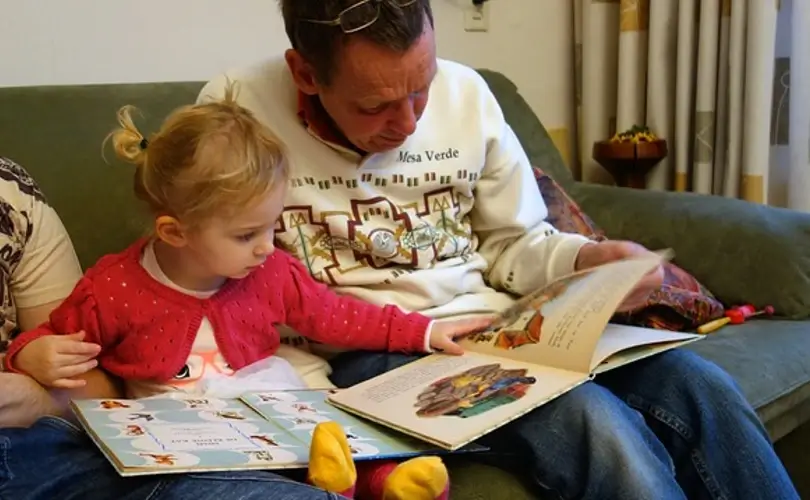The process through which children gain information and comprehend the world around them is called cognitive development. The development of critical thinking abilities, the ability to solve problems, language skills, memory skills, and creative thinking are all included in this process.
The Many Phases of Intellectual Development
There are many diverse hypotheses concerning the phases that make up cognitive development. The hypothesis of cognitive development proposed by Jean Piaget is among the most well-known of all ideas. According to Piaget’s theory, children’s cognitive development may be divided into four stages.
Children from birth to two years old are in the sensorimotor stage of development. During this period, children learn about the world through their senses and the activities they take physically. They learn about the things they investigate by touching, tasting, smelling, looking at, and listening to them. They do this by creating essential links between what they do and the effects of those activities. This helps them learn about cause and effect.
During the preoperational period, which occurs between the ages of 2 and 7, children acquire symbolic cognition. They can depict things and occurrences via the use of language and visuals. They also start to grasp the notion of conservation, which refers to the idea that the total amount of something remains the same even if it is rearranged or altered in some other way physically.
During the concrete operational stage, which lasts from ages 7 to 11, a child’s thinking becomes increasingly logical and sensible. They can have a solid method of thinking about difficulties and solve them by following straightforward principles. In addition, they start to grasp the idea of reversibility, which refers to the notion that actions may be reversed.
Formal operational stage (11 to 18 years): Children gain the ability to think abstractly throughout this stage, which lasts from 11 to 18 years. They can ponder hypothetical scenarios and take into consideration a variety of options. In addition to this, they start to have a grasp on the idea of probability.
The Factors That Have an Impact on a Person’s Cognitive Development
Numerous aspects of a person’s life might impact their cognitive growth, such as their genes, environment, and experiences.
The genes that children inherit affect how their minds develop as they grow. Some infants are born with innate abilities that put them ahead of their peers in specific subjects, such as language or mathematics.
Environment: A child’s cognitive development is also influenced by the environment in which they are raised; hence, the environment is essential. Children in less exciting circumstances tend to have slower cognitive development than those brought up in highly stimulating environments, providing many opportunities for children to learn and explore their surroundings.
The cognitive development of children is also impacted by the many experiences they have during their childhood. Children with positive experiences, such as being read to and played with, are more likely to have higher cognitive development than children with bad experiences, such as being ignored or mistreated. Some examples of positive experiences include: reading to the kid and playing with the child.
How to Best Foster Mental Growth and Development
Parents and other caregivers may do a variety of actions to assist their children in the process of cognitive development.
Providing a stimulating environment for children entails giving them chances to discover new things in an atmosphere that is both secure and encouraging of their endeavors. This may involve giving kids playthings, books, and other resources that encourage them to utilize their minds, such as puzzles and word games.
Regularly talking to children, interrogating them, and playing with them are all examples of what is meant by the term “interacting with children.” This assists in the development of their social abilities, as well as their linguistic and problem-solving skills.
Reading helps children grow their language abilities and vocabulary. Reading to children helps build their language skills and vocabulary. Additionally, it introduces them to fresh thoughts and principles.
Children benefit from being encouraged to ask questions since this helps them develop their natural curiosity and problem-solving ability. When we talk about assisting children in making connections, we mean assisting them in recognizing the links between various ideas and concepts. This can be accomplished by offering the individual(s) in issue with examples, asking them questions, and assisting them in drawing images or diagrams.
The process of cognitive growth is complicated and is impacted by many different circumstances. On the other hand, there are actions that parents and other primary caregivers may do to help their children’s cognitive development. Parents and other caregivers may assist children in reaching their full cognitive potential by creating an intellectually exciting atmosphere, routinely interacting with the children, reading to them, and listening attentively to their questions.

Dominic E. is a passionate filmmaker navigating the exciting intersection of art and science. By day, he delves into the complexities of the human body as a full-time medical writer, meticulously translating intricate medical concepts into accessible and engaging narratives. By night, he explores the boundless realm of cinematic storytelling, crafting narratives that evoke emotion and challenge perspectives. Film Student and Full-time Medical Writer for ContentVendor.com




